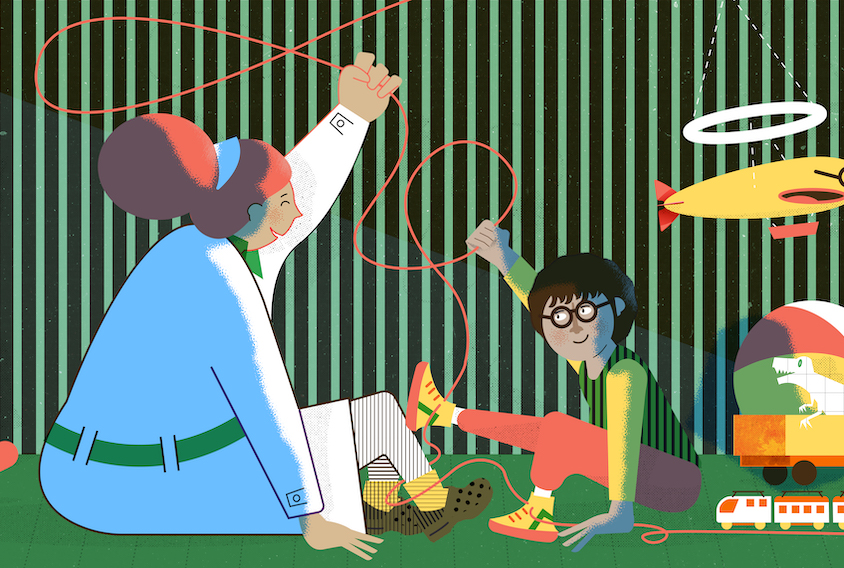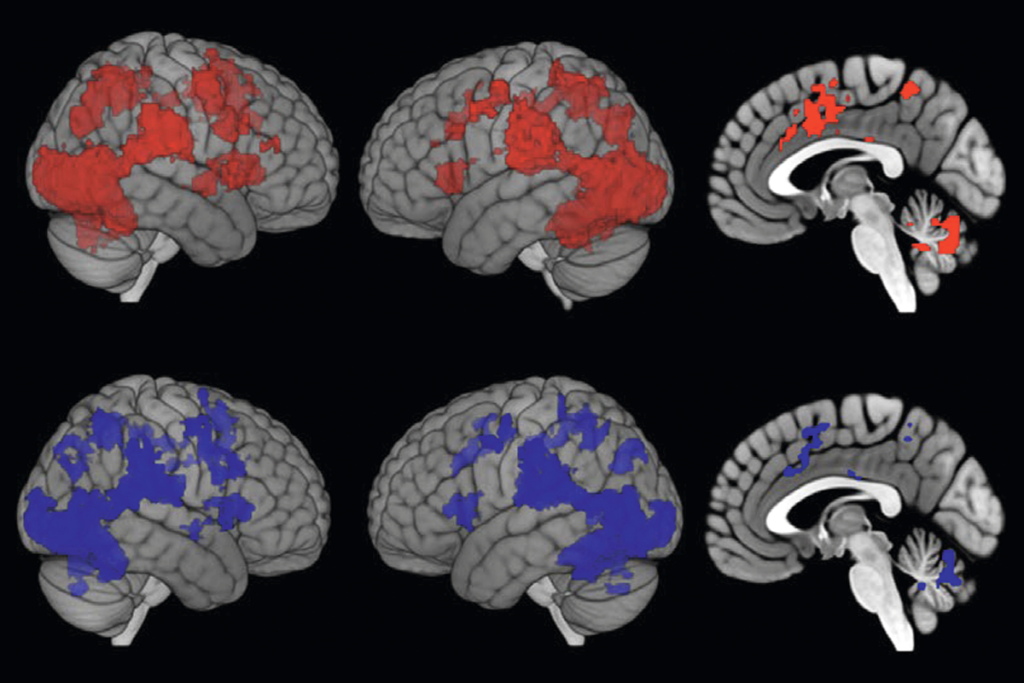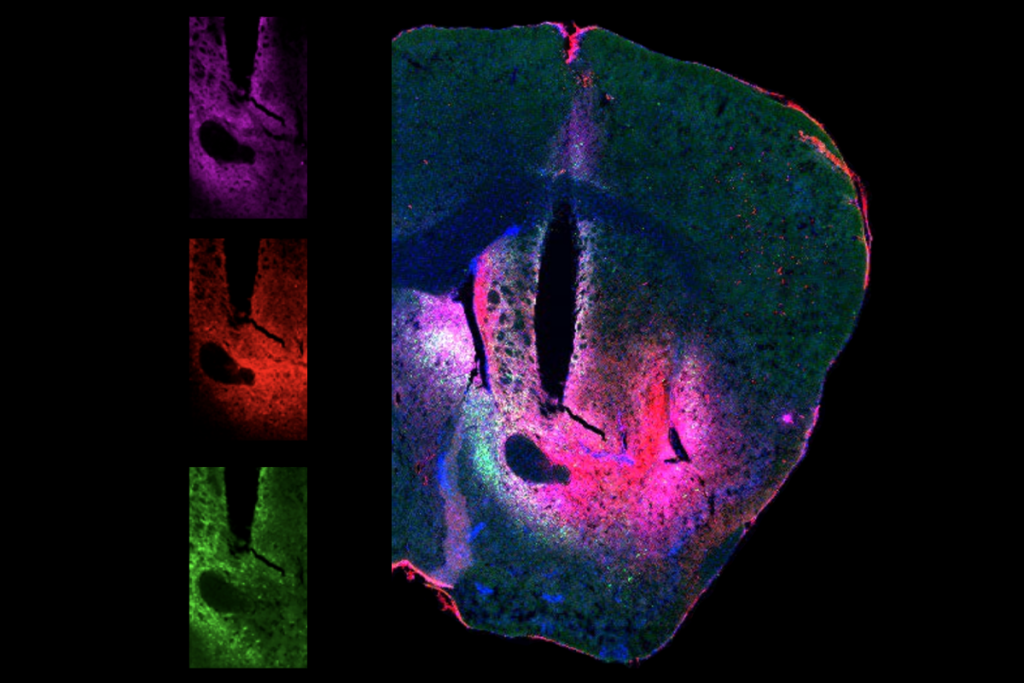Casey Zampella is a scientist at the Center for Autism Research at Children’s Hospital of Philadelphia in Pennsylvania. Her research focuses on quantifying movement differences in autism and their effects on social communication and reciprocity.

Casey Zampella
Scientist
Center for Autism Research, Children’s Hospital of Philadelphia
From this contributor
Motor skills in autism: A missed opportunity
Motor differences are more relevant than has historically been appreciated for understanding, assessing and supporting people on the spectrum.

Motor skills in autism: A missed opportunity
Explore more from The Transmitter
Human brain may anticipate looming contagion
Seeing a visibly ill avatar in virtual reality activates a neuroimmune pathway in brain areas related to peripersonal space and prompts an immune response, a small new study suggests.

Human brain may anticipate looming contagion
Seeing a visibly ill avatar in virtual reality activates a neuroimmune pathway in brain areas related to peripersonal space and prompts an immune response, a small new study suggests.
What U.S. science stands to lose without international graduate students and postdoctoral researchers
Neuroscience in other countries will strengthen—at the United States’ expense—as rising visa restrictions and rejections block many international students from enrolling at U.S. institutions and dissuade others from applying.

What U.S. science stands to lose without international graduate students and postdoctoral researchers
Neuroscience in other countries will strengthen—at the United States’ expense—as rising visa restrictions and rejections block many international students from enrolling at U.S. institutions and dissuade others from applying.
New dopamine sensor powers three-color imaging in live animals
The tool leverages a previously unused segment of the color spectrum to track the neurotransmitter and can be used with two additional sensors to monitor other neurochemicals at different wavelengths.

New dopamine sensor powers three-color imaging in live animals
The tool leverages a previously unused segment of the color spectrum to track the neurotransmitter and can be used with two additional sensors to monitor other neurochemicals at different wavelengths.